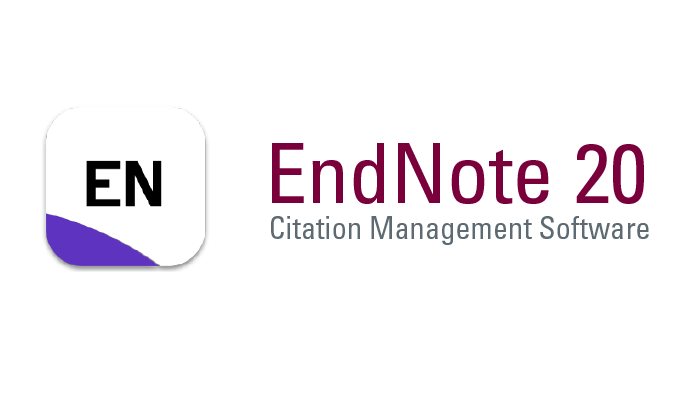PENDIDIKAN MULTIKULTURAL DALAM MENJAGA KERUKUNAN UMAT BERAGAMA
Studi Tantangan Dinamika Pendidikan Masyarakat Indonesia
DOI:
https://doi.org/10.47887/amd.v4i2.134Keywords:
Education, Multiculturalism, Religious HarmonyAbstract
Education is one of the most important parts of human life. With this education, humans have provisions aimed at helping their lives and helping their country. This education can be formal education and non-formal education. Formal education is obtained during learning at school, while non-formal education is obtained from everyday life, including family and society, such as manners and attitudes in daily life in society. In its position, education does not develop alone but is also influenced by the development of other sciences. Until now, education still utilizes philosophy, apart from that it also utilizes the findings of psychology, sociology, anthropology, economics, law, physiology, and so on. As a basis, multicultural education is providing equal learning opportunities to students regardless of their differences (Banks in Wahid, 2016: 288). This means that multicultural education is an educational approach that does not distinguish between cultures, ethnicities, religions and other differences in the sense that all are considered equal, have the same chances and opportunities, and can be harmonious without only favoring each group, let alone ridiculing or considering other groups as inferior. even an enemy to his group. Etymologically, multicultural education is formed by two constituent words, namely the word "education" which means the process of developing a person's attitudes and behavior and "multicultural" diverse cultures or traditions. Thus, multicultural education is education regarding or using an approach to different cultures and traditions. diverse.
References
Ahmad Syafi’i Mufid. 2001, Dialog Agama Dan Kebangsaan, Jakarta: Zikrul Hakim.
Ainul Yaqin. 2005, Pendidikan Multikultural: Cross-Cultural Understanding untuk Demokrasi dan Keadilan Yogyakarta: Pilar Media.
Arofah, Lailatul, 2010. Pola Pendidikan Islam dalam Mewujudkan Kerukunan Hidup Antar Umat Beragama di Desa Deyangan Kecamatan Mertoyudan Kabupaten Magelang Tahun 2009. Fakultas Tarbiyah STAIN Salatiga.
Barnanib, Imam, 1996, Dasar Dasar Kependidikan, Ghalia Indonesia, Jakarta.
Choirul Mahfud. 2010, Pendidikan Multikultural, Yogyakarta: Pustaka Penerbit.
Dapat dilihat dari tulisan Parsudi Suparlan, Kemajmukan Amerika: Dari Monokulturalisme ke Multikulturalisme, Jurnal Studi Amerika. Vol. 5. Agustus, 1999.
Hakiemah, Ainun, 2007. Nilai-Nilai dan Konsep Pendidikan Multikultural dalam Pendidikan Islam. Fakultas Tarbiyah dan Keguruan UIN Sunan Kalijaga Yogyakarta.
Ichsan, 2010. Pendidikan Multikultural di SMP Negeri 5 Makassar. Fakultas Tarbiyah dan Keguruan UIN Sunan Kalijaga Yogyakarta.
Isnarmi Moeis. 2014, Pendidikan Multikultural Transformatif, Integritas Moral, Dialogis, dan Adil, UNP Press: Padang.
M. Ainul Yaqin. 2005, Pendidikan Multikultural: Cross-Cultural Understanding Untuk Demokrasi dan Keadilan, Yogyakarta: Nuansa Aksara.
Munib, Achmad. 2009, Pengantar Ilmu Pendidikan. Semarang: Unnes Press.
Nurani Suyomukti, Teori-Teori Pendidikan, Jogjakarta: Ar-Ruzz Media.
Qardhawi, Yusuf, 2001. Umat Islam Menyonsong Abad 21, terjemahan Yogi Prana Izza dan Aksan Takwin. Solo: Intermedia.
Sugiyono. 2018, Metode Penelitian Kuantitatif, Kualitatif, dan R&D. Bandung: Alfabeta.
Sulalah. 2011. Pendidikan Multikultural Didaktita Nilai-Nilai Universalitas Kebangsaan. Malang: UIN-Maliki Press.
Suratman. 2010, MBM Munir dan Umi Salammah. Ilmu Sosial & Budaya Dasar. Malang: Intimedia.
Umi Sumbulah dan Nurjanah. 2013, Pluralisme Agama Makna dan Lokalitas Pola Kerukunan Antar Umat Beragama, Malang: UIN-Maliki Press.
Wasitohadi. 2012, “Gagasan dan Desain Pendidikan Multikultural di Indonesia” dalam Scholaria, Vol. 2, No. 1, Januari.
Yamin, Moh dan Vivi Aulia, 2011. Meretas Toleransi Plurakisme dan Multikulturalisme Keniscayaan Peradaban. Malang: Madani Media.
Downloads
Published
How to Cite
Issue
Section
License
Copyright (c) 2023 Murtadha Murtadha, Fauzan Fauzan

This work is licensed under a Creative Commons Attribution-ShareAlike 4.0 International License.
Authors retain copyright and grant the journal right of first publication and this work is licensed under a Creative Commons Attribution-ShareAlike 4.0 that allows others to share the work with an acknowledgement of the works authorship and initial publication in this journal.
All articles in this journal may be disseminated by listing valid sources and the title of the article should not be omitted. The content of the article is liable to the author.
Authors are able to enter into separate, additional contractual arrangements for the non-exclusive distribution of the journal's published version of the work (e.g., post it to an institutional repository or publish it in a book), with an acknowledgment of its initial publication in this journal.
Authors are permitted and encouraged to post their work online (e.g., in institutional repositories or on their website) prior to and during the submission process, as it can lead to productive exchanges, as well as earlier and greater citation of published work.
In the dissemination of articles by the author must declare the Al-Madaris Jurnal Pendidikan dan Studi Keislaman as the first party to publish the article.














